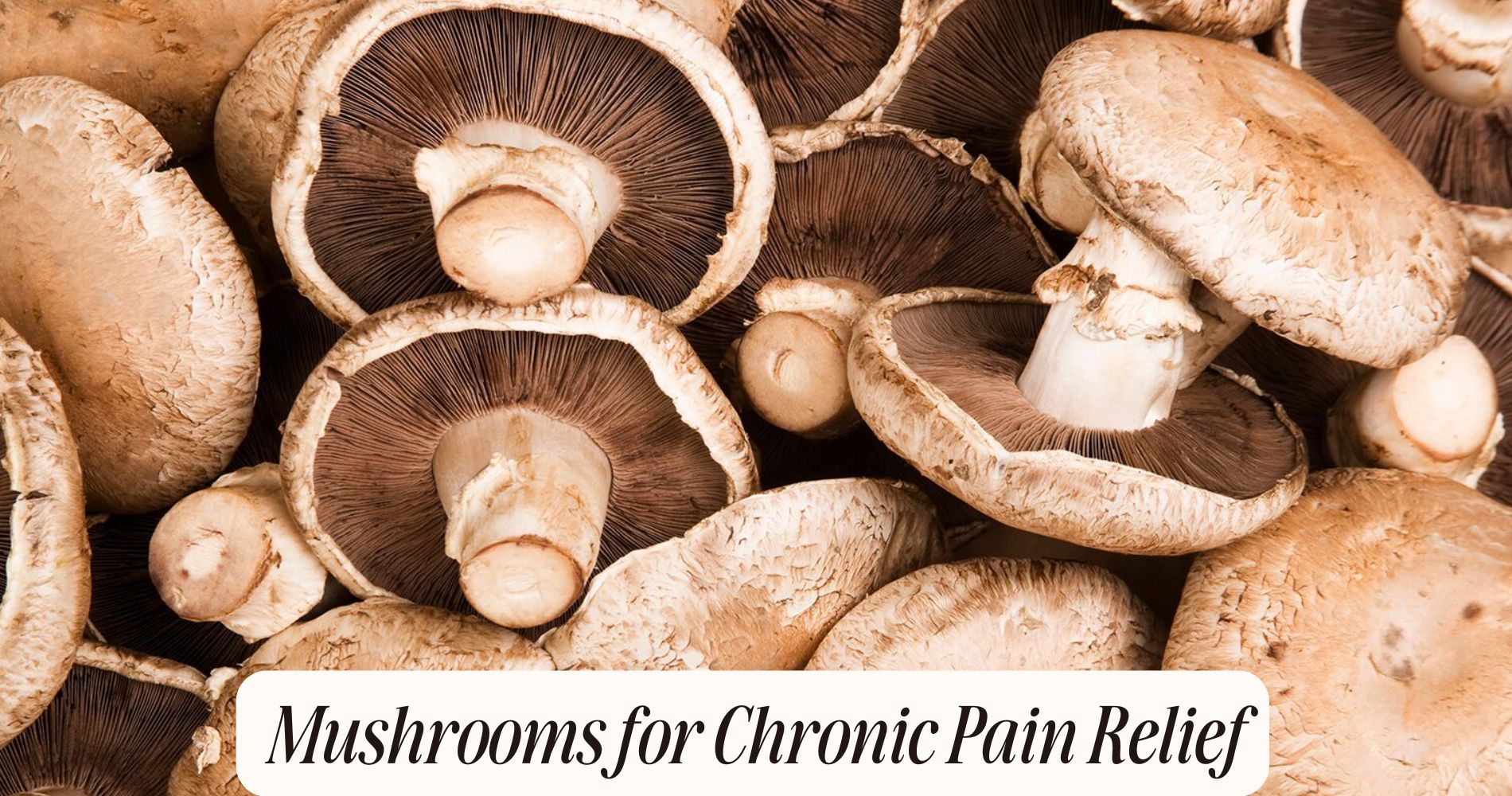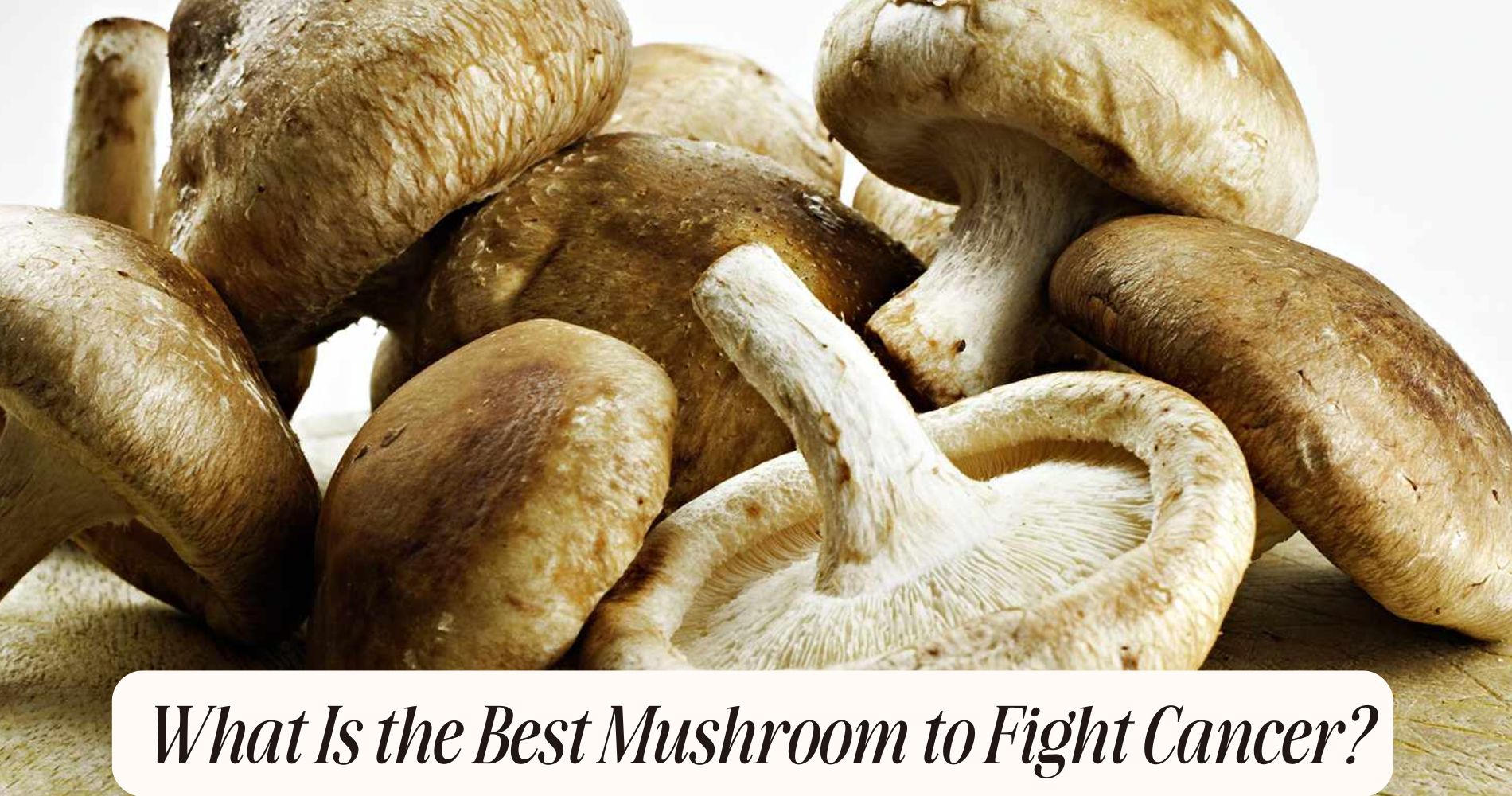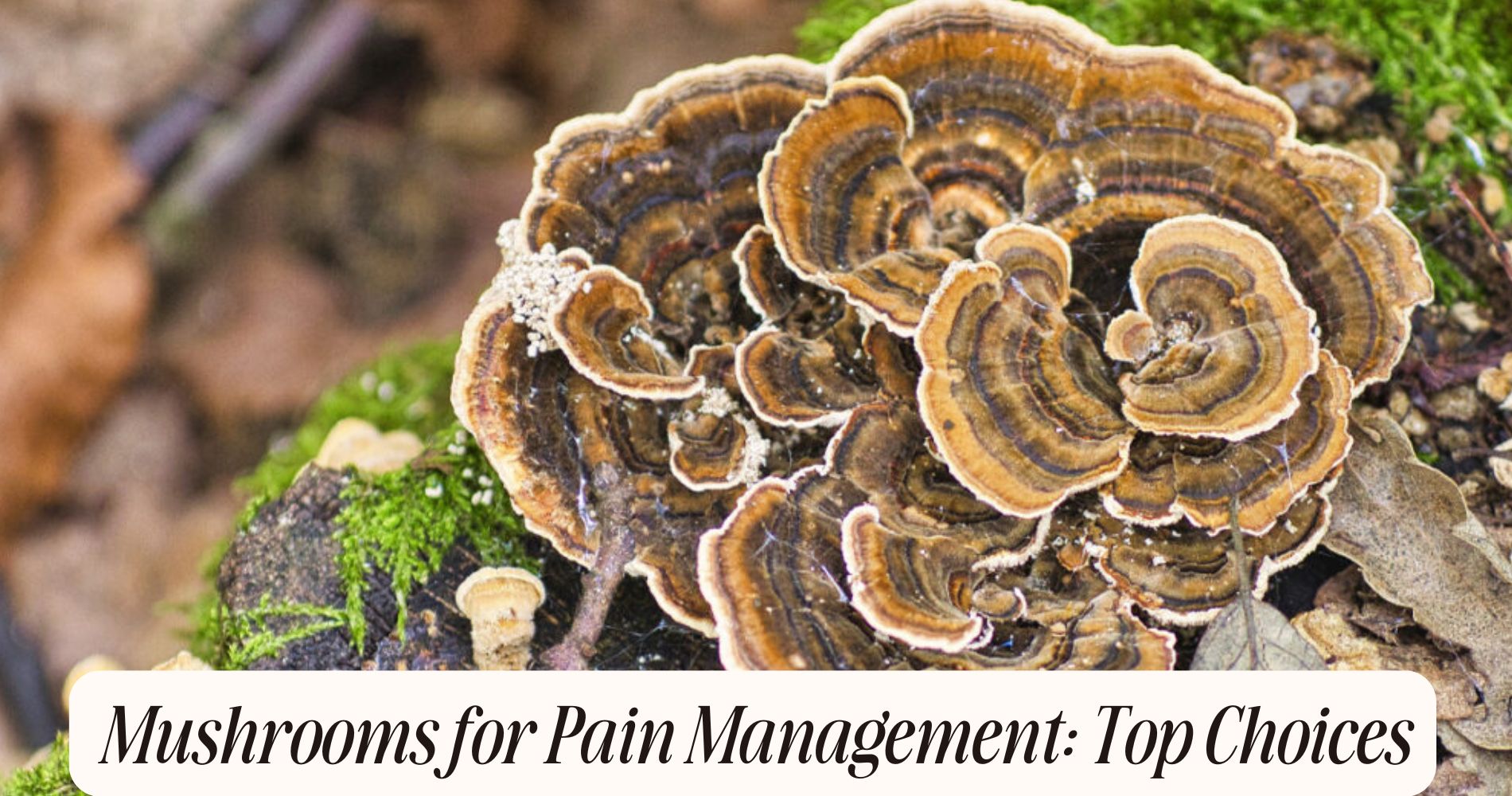
Mushrooms for Chronic Pain Relief
Understanding Chronic Pain
Chronic pain affects millions of people worldwide, making everyday activities a struggle.
It's important to understand that pain perception varies among individuals, influenced by various factors, including psychological factors and the specific chronic conditions you may face. These conditions can alter your neurological responses, causing your brain to interpret signals differently, leading to heightened sensitivity to pain.
Coping strategies play an essential role in managing chronic pain. You might find that combining treatment options—such as medication, physical therapy, and psychological support—can be effective.
Lifestyle modifications, including regular exercise, a balanced diet, and stress management techniques, can also considerably impact your overall well-being.
Additionally, identifying inflammation triggers is critical for effective pain management. By understanding the underlying causes of your pain, you can tailor your coping strategies accordingly.
Patient experiences show that addressing both physical and emotional aspects of chronic pain often leads to better outcomes.
Ultimately, a holistic approach, incorporating various coping strategies and treatment options, can help you navigate the complexities of chronic pain, improving your quality of life.
The Role of Mushrooms
Mushrooms have gained attention for their potential benefits in managing chronic pain. Various mushroom varieties, such as reishi, cordyceps, and chaga, possess unique medicinal properties that may help alleviate discomfort. These fungi contain bioactive compounds, including polysaccharides and triterpenes, which contribute to their anti-inflammatory and analgesic effects.

When you incorporate mushrooms into your diet or use supplements, you're tapping into their natural ability to modulate pain pathways and improve overall well-being. Research suggests that these medicinal properties can enhance your body's response to pain and inflammation, potentially reducing reliance on traditional pain relief methods.
Moreover, mushrooms are rich in antioxidants, which can help combat oxidative stress linked to chronic pain conditions. By including a variety of mushrooms in your nutritional regimen, you might find a supportive ally in your journey toward pain management.
It's essential to consult with a healthcare professional before making any significant changes to your diet or treatment plan. With the right guidance, you can effectively explore the role of mushrooms in addressing chronic pain and improving your quality of life.
Lion's Mane Benefits
Among the various mushrooms, Lion's Mane stands out for its impressive health benefits, particularly in supporting nerve health and cognitive function. This unique fungus contains bioactive compounds that promote nerve growth factor (NGF) production, which plays a critical role in the growth and maintenance of neurons.
By enhancing NGF levels, Lion's Mane exhibits neuroprotective properties, helping to shield your brain from age-related decline and neurodegenerative diseases.
If you're looking for cognitive enhancement, incorporating Lion's Mane into your diet could be beneficial. Research suggests that it may improve memory, focus, and overall mental clarity.

Additionally, some studies indicate that it might alleviate symptoms of anxiety and depression, contributing to a more balanced mental state.
You can enjoy Lion's Mane in various forms, including supplements, teas, and culinary dishes. Whichever method you choose, the mushroom's potential to support cognitive health and protect your nervous system makes it a valuable addition to your wellness routine.
As always, consult with a healthcare professional before starting any new supplement regimen, especially if you have underlying health conditions or are on medication.
Reishi for Pain Relief
Reishi is renowned for its potential to provide pain relief and support overall well-being. This mushroom, often referred to as the "mushroom of immortality," has been used in traditional medicine for centuries.
You may find that reishi benefits include reducing inflammation, which can be a significant factor in chronic pain. By modulating your immune response, reishi can help alleviate discomfort associated with various pain conditions.

When considering reishi for pain relief, it's crucial to look at the appropriate dosage. Most studies suggest a daily intake of 1.5 to 9 grams of reishi extract, although individual needs can vary. It's best to start with a lower dose and gradually increase it, allowing your body to adjust.
Additionally, reishi is available in various forms, including powder, capsules, and teas, making it easy to incorporate into your routine.
However, always consult with a healthcare professional before adding any new supplement to your regimen, especially if you're on medication or have underlying health conditions.
Other Beneficial Mushrooms
While reishi is a popular choice for pain relief, several other mushrooms also offer promising benefits for chronic pain management.
Shiitake mushrooms, known for their rich flavor, also provide significant health benefits. They contain compounds that can help reduce inflammation, which is often a key factor in chronic pain. Incorporating shiitake into your diet may enhance your overall well-being and support your body's response to pain.
Maitake mushrooms are another excellent option worth considering. They possess unique properties that may help modulate the immune system and alleviate pain.
Maitake contains beta-glucans, which have been shown to support immune health and reduce inflammation. This makes them a beneficial addition to your regimen, especially if you suffer from conditions involving chronic pain.
How to Use Mushrooms
Incorporating mushrooms like shiitake and maitake into your routine is straightforward and can be highly beneficial. Start with various cooking techniques, such as sautéing, steaming, or adding them to soups and stews. These methods can enhance their flavor while retaining nutrients.
For dosage recommendations, aim for about 1-2 cups of fresh mushrooms or 1-2 teaspoons of dried mushrooms per day, but consult a healthcare professional for personalized advice.
Preparation methods can vary; for fresh mushrooms, clean them gently with a damp cloth. Dried mushrooms often require soaking in warm water before use. When exploring different mushroom types, consider lion's mane or reishi for their unique properties.

Infusion methods, like brewing mushroom tea, can also be effective. Alternatively, you might choose supplement forms such as capsules or powders for convenience. Pairing suggestions include combining mushrooms with garlic, onions, or leafy greens to boost flavor and health benefits.
If you're keen on foraging, remember to follow harvesting tips: only collect mushrooms you can positively identify and avoid any that could be toxic.
With these techniques, you'll find it easy to integrate mushrooms into your daily routine for chronic pain relief.
Potential Side Effects
When considering mushrooms for chronic pain relief, it's important to be aware of potential side effects.
You might experience allergic reactions, gastrointestinal disturbances, or interactions with other medications.
Always consult a healthcare professional before adding mushrooms to your regimen.
Allergic Reactions Risks
Mushrooms can offer relief for chronic pain, but it's vital to keep an eye out for potential allergic reactions. While many people consume mushrooms without issues, some may experience mushroom allergies that can lead to uncomfortable and sometimes severe symptoms.
Symptoms awareness is key. If you've never consumed mushrooms before, start with a small amount. Common allergic reactions include itching, hives, and swelling, especially around the face and throat.
In more serious cases, you might experience difficulty breathing or anaphylaxis, which requires immediate medical attention. If you have a history of allergies to other fungi or molds, you should be particularly cautious.
Even if you're aware of your mushroom consumption, it's wise to monitor how your body reacts over time. Different species may trigger different responses, so what works for one person mightn't be safe for another.
Consulting a healthcare professional before adding mushrooms to your diet is a good practice, especially if you're prone to allergies. Staying informed and aware can help you enjoy the benefits of mushrooms safely while minimizing any risk of allergic reactions.
Gastrointestinal Disturbances
Many people experience gastrointestinal disturbances when consuming mushrooms, which can range from mild discomfort to more serious issues. These disturbances may include bloating, gas, diarrhea, or nausea. If you've got a sensitive stomach, you might find that certain types of mushrooms are harder to digest than others. It's vital to pay attention to how your body reacts after consumption.
Mushrooms contain compounds that can impact your gastrointestinal health. Some individuals may have difficulty breaking down the chitin found in mushroom cell walls, leading to digestive issues. Additionally, some mushrooms have a high fiber content, which, while beneficial in moderation, can cause discomfort if consumed in excess.
To minimize the risk of gastrointestinal disturbances, start with small amounts of mushrooms and gradually increase your intake as your body adjusts. Cooking mushrooms can also aid digestion, as it helps break down tough fibers.
If you notice persistent or severe digestive issues after consuming mushrooms, it's important to consult a healthcare professional. They can help determine if mushrooms are suitable for your diet or if you should consider alternatives for chronic pain relief.
Drug Interactions Considerations
Digestive issues aren't the only concern when incorporating mushrooms into your diet, especially for chronic pain relief.
It's vital to contemplate potential drug interactions that can affect overall health and treatment efficacy. Mushrooms can influence drug metabolism, meaning they might alter how your body processes medications. This can lead to either increased effects of certain drugs or reduced efficacy, depending on the specific substances involved.
Additionally, mushrooms may interact with herbal supplements you've chosen for pain management. These herbal interactions can complicate your treatment plan and lead to unforeseen side effects. For instance, some mushrooms might enhance the anticoagulant effects of blood thinners, potentially increasing the risk of bleeding.
Before adding mushrooms to your regimen, consult with a healthcare professional to assess your current medications and supplements. They can help identify any possible interactions and recommend the safest course of action.
Being proactive about these considerations can prevent adverse effects and guarantee that your chronic pain relief strategy is both effective and safe. Always prioritize your health by staying informed about how various substances can work together within your body.
Research and Studies
When it comes to the effectiveness of mushrooms for chronic pain relief, clinical trials provide valuable insights.
You'll find various studies exploring how certain compounds in mushrooms interact with the body's pain pathways.
Understanding these mechanisms of action is essential for grasping their potential therapeutic benefits.
Clinical Trials Overview
While research into the use of mushrooms for chronic pain relief is still evolving, several clinical trials have begun to shed light on their potential benefits. These studies focus on various mushroom species, particularly those containing compounds like psilocybin and other bioactive substances. Participants in these trials often report significant improvements in pain management and overall well-being.
One prominent study explored the effects of psilocybin on patients with treatment-resistant chronic pain. Results indicated that participants experienced reduced pain levels and enhanced emotional resilience.
Another trial investigated the anti-inflammatory properties of specific mushroom extracts, revealing promising outcomes for individuals suffering from conditions like fibromyalgia and arthritis.
Furthermore, clinical research is also examining the psychological aspects of pain relief associated with mushrooms. Many participants report a reduction in anxiety and depression, which can exacerbate chronic pain.
As these trials unfold, they're providing valuable insights into how mushrooms might serve as a complementary approach to traditional pain management strategies.
Mechanisms of Action
Research into the mechanisms of action of mushrooms in chronic pain relief highlights several key pathways through which their bioactive compounds exert effects.
One significant mechanism involves the reduction of neuroinflammation, which plays a vital role in chronic pain conditions. By targeting inflammatory markers, mushrooms can help mitigate the immune response that contributes to chronic inflammation.
Moreover, mushrooms may influence pain pathways through endocannabinoid modulation. This interaction can enhance the body's natural pain relief mechanisms, altering pain perception and reducing discomfort.
Their antioxidant properties also contribute by combating oxidative stress, which can exacerbate pain and inflammation.
Mushrooms are known to have an impact on serotonin regulation, potentially improving mood and reducing the stress response often linked to chronic pain.
In addition, neuroprotection mechanisms in certain mushroom species can shield nerve cells from damage, promoting overall neurological health.
Natural Pain Relief with 10-IN-1 MUSHROOM GUMMIES
If you're looking into mushrooms for chronic pain, consider Well Gummies’ 10-IN-1 MUSHROOM GUMMIES as a convenient, effective way to experience relief. These vegan-friendly gummies are loaded with 10 powerful mushrooms, including reishi, known for their anti-inflammatory and immune-supporting properties. They provide calm, balanced energy and sharper focus to help manage pain and support overall well-being. With a delicious wild berry flavor, you can enjoy the benefits without the jitters or energy crashes—just a tasty, natural way to feel your best all day.
Frequently Asked Questions
Can Mushrooms Be Combined With Other Pain Relief Medications?
When considering mushroom interactions with pain relief medications, it's essential to consult a healthcare professional. They can provide dosage recommendations and guarantee safe combinations, minimizing the risk of adverse effects or reduced effectiveness.
How Quickly Can I Expect to Feel Pain Relief From Mushrooms?
You can expect to feel pain relief from mushrooms within 30 minutes to a few hours, depending on the mushroom dosage and your body's response. Effective pain management often requires patience and proper dosage adjustments.
Are There Specific Mushrooms for Different Types of Chronic Pain?
Yes, different mushroom varieties can target specific pain types. For instance, Lion's Mane may help with nerve pain, while Reishi is known for its anti-inflammatory properties. Researching these varieties can guide your choices effectively.
Is It Safe to Consume Mushrooms Daily for Pain Relief?
Consuming mushrooms daily can be safe, but you should monitor your dosage. Pay attention to potential side effects, like digestive issues or allergic reactions. Always consult a healthcare professional before making any significant dietary changes.
Where Can I Find High-Quality Medicinal Mushrooms?
You can find high-quality medicinal mushrooms through reputable suppliers who prioritize mushroom sourcing and adhere to strict quality standards. Check online platforms, local health stores, or farmers' markets for trusted brands and products.
Conclusion
Incorporating mushrooms into your routine may offer a natural approach to managing chronic pain. With varieties like Lion's Mane and Reishi showing potential benefits, you could find relief while supporting overall health. However, it's crucial to evaluate possible side effects and consult with a healthcare professional before starting any new supplement. By exploring the research and understanding how to use these fungi, you can make informed choices for your pain management journey.




